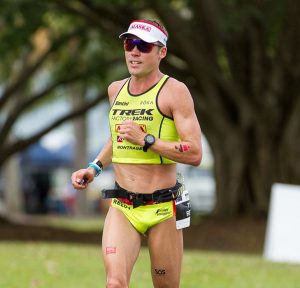Curbing The Come Down
It’s been close to a perfect prep. You’ve ticked every box possible in regards to nailing your ‘A’ race. Sacrifices a plenty along the way including spending a lot less quality time with friends and family and justifying putting off life-tasks that you’ll get around to after the race. ‘You’ll make up for it once the race is over’ is the common mantra I tell myself and is the familiar theme I hear from others. The race tends to go one of two ways.
Scenario 1- Really well. You’ve smashed your personal best, perhaps beat your training buddies or for the pros out there, loaded some prize money into the bank and kept sponsors throwing high fives around in the office at their genius decision to sponsor you. The finish line feeling was as good as everyone told you it would be. Shivers down your spine, screams of pure joy at the finish line and all that usual carry on. The day after the race and you’re still on a massive high. How good are the next few weeks going to be? Lying around, relishing in the glory of what you’ve achieved, no training, catching up with friends, throwing back chips and beers with zero guilt. It’s going to be the best! Only it isn’t.
Scenario 2- You’ve had either a moderately disappointing or excruciatingly disappointing race.
Ironically, both scenarios often lead to the same outcome. Only with the disappointing result the feeling can come sooner. You feel c0mpletely empty. What now? You ticked off or missed the goal you’ve been working towards for months, maybe even years. By mid week you’re struggling to find the motivation to even get out of bed let alone make the effort to make up for the selfishness you imparted on friends and family during the build up. There’s a strange feeling of perpetual sadness combined with a completely overwhelming level of anxiety thinking of things you need to get done to get the rest of life back on track. For some lucky people, ‘post-event depression’, as it is can be coined, can last for just a few days. For others, it can linger for weeks or even months.
What is ‘Post Event-Depression’?
The months of training to complete your event take a huge amount of motivation and discipline to get out the door for each session. The nice part of the preparation and all the training that many of us don’t take for granted is the daily feelings of accomplishment after ticking off each session. I believe it’s deep in our ancestral DNA to need consistent purpose to be happy. The pillars of happiness; adequate food, shelter, love and the one that’s often ignored- ‘purpose‘. It’s quite possible that like myself, you also become very fond of the brain chemicals that are released during training. During and after training the brain releases ‘feel good’ neurotransmitters including dompamine, norephinephrine and serotonin. Pain, anxiety and stress can be strongly mitigated by these chemicals and it’s likely that endurance athletes in particular become very fond of their morphine like effect post training. There is a reason that former drug addicts who’ve beaten their demons end up in ultra running or competing in Ironman triathlon, some of them doing exceptionally well.
On a more acute level, race day takes an enormous emotional toll. The brain’s stress chemicals are circulating in overdrive before and during the race. You then receive a massive endorphin release upon finishing which leaves the athlete with a ‘racer’s high’. Typically, we then go cold turkey on training and the body, at least from what I’ve observed, seems to almost go into withdrawals due to an elimination of the brain chemicals daily training has provided for so long.
Newton’s third law of physics can also be applied to psychology. “For every action there is an equal and opposite reaction”. What goes up, must come down.
- Be ready. I would love to jot down some recommendations of how to get through the post race period without suffering any post race blues at all but for the majority of people, that would be unrealistic. Plus, if you’re going to get the the most out of yourself mentally on race day you’re going to have to deplete yourself to a significant degree. However, being ready for the fall and understanding why it’s happening can make for a much softer landing. It’s worth warning your loved ones that you might be a little down for a few days so that they don’t get frustrated if you’re not your usual enthusiastic self.
- Alcohol and Caffeine Before I’m called out for blatant hypocrisy, do as I say not as I do. I’m rather fond of a beer or three post race but I’m also very accepting of the fact that I often do myself no psychological favours with this indulgence. Especially after a race has gone well there can be a very strong desire to get out and celebrate. It’s often been weeks or months of living like a monk and you want to get out and enjoy yourself. If you really struggle with post-event depression I would seriously consider skipping drinking until the brain is on a more even keel. Same goes for post-event anxiety. Steer off caffeine for a while until you’re mood is more stable. Just because caffeine and alcohol are widely socially accepted they’re still drugs with both positive and negative effects and the negatives can really be enhanced post race.
- In addition with caffeine, your body and mind has been given a solid bashing, all-time high cortisol levels are circulating and your heart rate is still nowhere near your typical resting rate. It’s not untypical for athletes to consume 400mg+ of caffeine on race day. The body wants and needs to rest to rebuild physically and emotionally but the temptation is to spend the day after the race sharing war stories with friends and trying to pick yourself up out of the fatigue with a few double shot espressos. You’re essentially throwing stimulants into a completely burnt out mind and body. The effect of caffeine is highly individual but again, if your prone to post-event anxiety perhaps take it easy on caffeine.

- Gut Health- There is ever increasing evidence that our gut health plays an integral role in regulating our moods and feeling of happiness. Racing an endurance event typically requires fuelling and hydrating with sports fuels and and drinks that in the short term help you get through the race as fast as possible but can also leave your gut microbes well out of whack with unhealthy gut bacteria thriving and healthy gut bacteria suffering. Binge eating tends to be the order of the day after a big endurance event and I would never try to deny an athlete this immense pleasure post race. However, if you can binge on more natural sources of food rich in healthy fats, protein and quality sources of carbs then it should go along way to helping your gut bounce back from the race day pounding it’s received and help produce positive mood stabilising chemicals to get your brain back to normal more quickly.
- Sleep- A disturbed sleep 2 nights out. 3 hours sleep the night before. Staring at the ceiling the night after the race. I’m sure that sleep pattern sounds familiar. By the time the whole race experience is done it’s so easy to be completely wrecked and sometimes it’s the lack of sleep that’s been the primary swinging wrecking ball even more so than the race. Sleep is a whole separate article but if sleeping is an issue for you like it is for me then I would look into getting to the race more than a couple of days before the race to settle in and truly relax and adjust to any time differences. Practicing ’Mindfulness Mediation’ has some solid evidence behind it for a long list of mental perks.
- Post race plan- Contrary to common practice perhaps consider an exercise schedule for the week after the race before starting on a complete or nearly complete break from training. The ‘cold turkey’ approach is pretty tough on the brain while even 30 mins a day of low impact exercise could go a long way to getting you outside, helping with a small bout of much needed endorphins and also actually aid healing of the body. Often muscles and fascia are riddled with mirco-tears post race and by not putting the body through a nice range of motion each day we heal in a shortened state. When we do resume training, despite the rest, injuries can pop up due to a lack of active recovery. Of course it’s not suitable to launch into high impact exercise like running and I still think a complete break from training is potentially useful for many, however I would give it a week or 10 days before going into a ‘no exercise phase’.
Be realistic! It can be easy to make work or a chore list for the weeks following your race that is very ambitious ignoring that you might not be in the most productive mental state. Make a list by all means but target one to two tasks a day instead of having unrealistic target that only leaves you overwhelmed and more stressed out by the end of the day when you haven’t achieved what you thought you would for that day.
- Be with people who make you happy.
It can make the world of difference when you’re feeling down. Take the time to be with the people you love and the people who make you happy. 
- Is it all worth it? After all this you might ask is it really all worth it if every great feeling in life is balanced out by an opposing negative emotions?
Only you can answer that for yourself and I completely appreciate for some, it may not be worth it if the suffering post event is particularly bad. For myself however, it’s absolutely worth it. We’re only here for a short while in the grand scheme of things and I would rather ride life’s extreme roller coaster of emotions then get to the end of the road wondering what it would have been like to have loved and lost love, seen and experienced the wonders of the world but also the darker side of humanity and experiencing the absolute elation of crossing a finish line in excess of all expectations or the disappointment when you fall well short of your goals. I try not to fear post-race depression, just accept it’s inevitable to some degree and manage it as best I can knowing that what goes up, must go down, but then will eventually go back up again!
Look out for each other and talk to your GP about the help available if you’re really struggling.
Cheers,
Reedy
Images 1,2 and 4- @KoruptVision
Image 3- @stuart.fefeita


 Please contact:
Please contact: